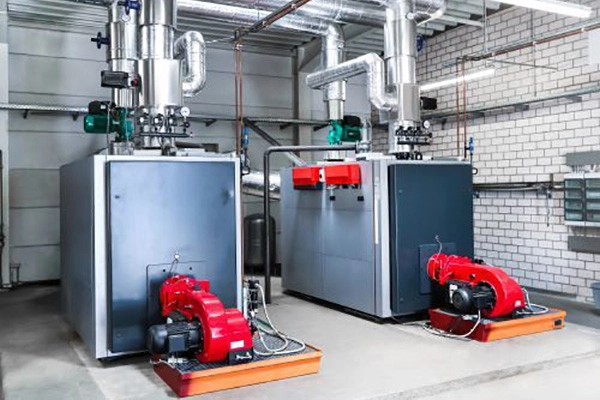
Welcome to Fangkuai Boiler! If you’re considering installing a propane boiler, it’s essential to understand the costs involved and what to expect. The cost of installing a propane boiler can vary based on several factors, including the size of your home, the complexity of the installation, and regional labor and material costs. In this article, we’ll provide you with some general information about the cost of installing a propane boiler, keeping in mind that specific costs may vary depending on your unique circumstances.
What is a propane boiler?
A propane boiler is a type of heating system that uses propane gas to heat water or provide warmth to a central heating system. It operates by burning propane gas in a combustion chamber, generating heat that is then transferred to the water or heating system, providing heat to the building. Propane boilers are commonly used alternatives to electric furnaces or oil boilers in residential and commercial buildings.
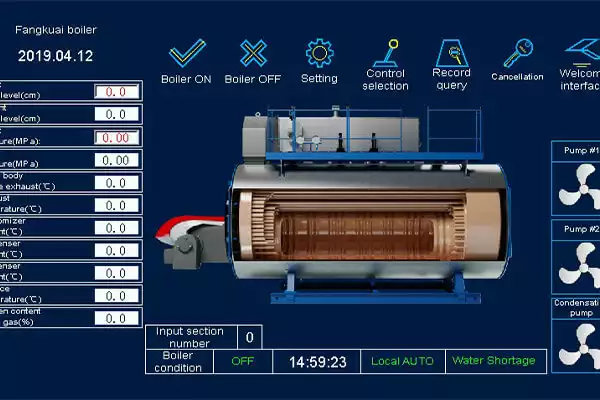
How does a propane boiler work?
The boiler burns propane gas in a combustion chamber, producing heat. This heat is then transferred to the water or central heating system, providing warmth to the building. To maintain the desired temperature, the boiler is controlled by a thermostat, which turns the burner on or off as needed.
Propane Gas Boiler Cost by Heating Method
When it comes to the cost of propane boilers, it’s important to consider the heating method. Both hot water and steam propane boilers can heat your home, but they do so differently. Hot water models are less costly than steam boilers, yet they tend to be more efficient and longer-lasting.
| Propane Boiler Type |
Heating Method per Sq. Ft. |
Average Cost Range (All-in) |
| Hot water |
1,000 |
$3,800 – $9,500 |
| Steam |
1,500 |
$5,100 – $12,000 |
Hot Water Propane Boiler
For hot water propane boilers, the installed cost can vary widely based on factors such as the type, size, and efficiency of the boiler, as well as labor and material costs for installation. On average, the cost of installing a hot water propane boiler ranges from $3,000 to $8,000, with most people spending around $5,500. It’s worth noting that additional requirements like ventilation, plumbing, or electrical upgrades may increase installation costs. However, in the long run, hot water propane boilers generally cost less to operate than electric water heaters or oil-fired boilers, making them a cost-effective option.
Propane Steam Boiler
As for propane steam boilers, their cost can vary based on factors such as size, efficiency class, brand, labor, and material costs for installation. On average, the cost of installing a propane steam boiler is around $5,000, but larger or more complex installations may cost more. Propane steam boilers are commonly used in commercial and industrial settings for applications like heating and manufacturing processes due to their energy efficiency and versatility.
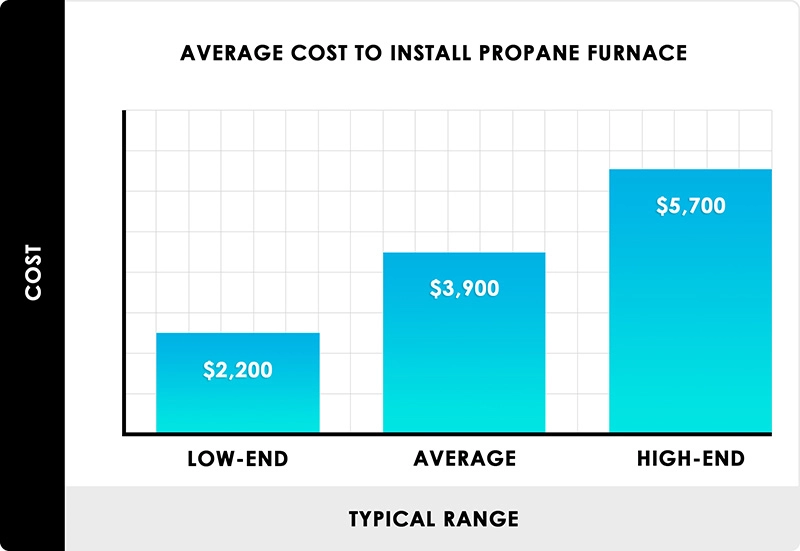
Propane Boiler Cost by Boiler Type
The cost of a propane boiler can also vary based on its type. Here are some common types of propane boilers and their estimated costs:
Condensing propane boilers: These boilers are highly efficient and extract heat from the exhaust gases, resulting in lower energy costs. The cost of a condensing propane boiler can range from $3,500 to $7,500.
Non-condensing propane boilers: These boilers are less efficient and do not extract heat from the exhaust gases. The cost of a non-condensing propane boiler can range from $2,500 to $5,000.
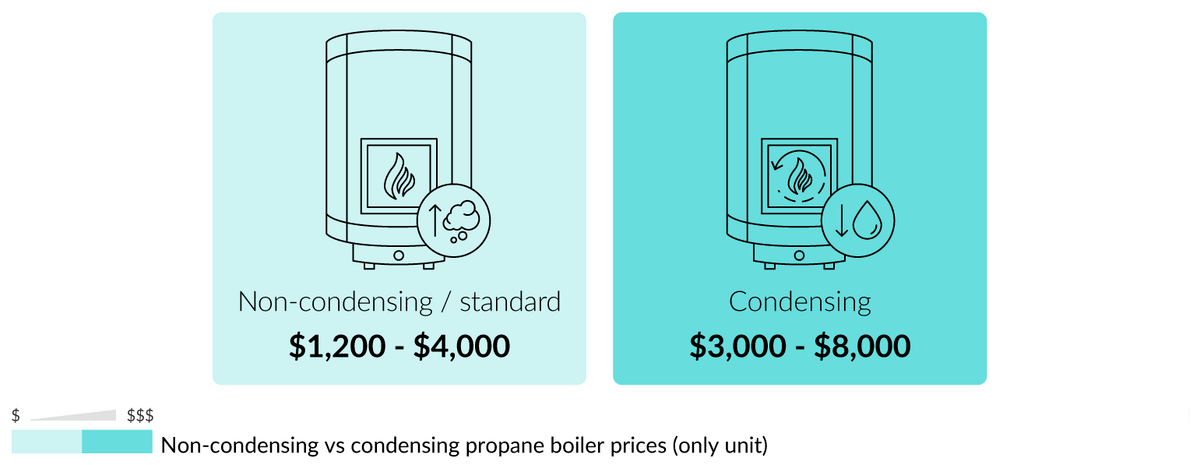
What is the Difference Between Propane and LPG?
Propane and LPG are often used interchangeably, but technically, propane is a type of liquefied petroleum gas (LPG). LPG is a term that encompasses a group of hydrocarbon gases, including propane, butane, and mixtures of the two. Propane is specifically a three-carbon alkane gas with the chemical formula C3H8.
While both propane and LPG are used as clean-burning fuels, there are slight differences in their composition and applications. Propane is commonly used for a wide range of purposes, including heating, cooking, and fueling vehicles. It is stored under pressure as a colorless, odorless liquid and vaporizes into gas form when released from its container.
On the other hand, LPG refers to a broader category of gases that includes propane, butane, and their mixtures. LPG can vary in composition depending on the specific ratios of propane and butane, and it is commonly used for heating, cooking, and powering appliances in residential, commercial, and industrial settings.
Overall, propane is a specific type of LPG, and the term “propane” is often used to refer to LPG in various contexts, including the grilling industry.
What is the difference between gas and propane heating?
Natural gas and propane heating are two commonly used types of heating systems in residential, commercial and industrial settings. The fundamental difference between the two is the type of gas they use. Natural gas is a fossil fuel and is typically supplied through a local utility company; whereas propane is a by-product of oil refinement and is typically stored in a tank on the property it will be used.
There are some differences in the energy output of the two fuels. Propane, which has more carbon atoms than natural gas, produces more energy per unit volume or mass than natural gas. In addition, propane burns hotter than natural gas, which can lead to higher efficiency in some cases.
Both fuels have their advantages and disadvantages, primarily depending on location, cost and other factors. For instance, natural gas is more frequently available in urban and suburban areas, and its cost is generally lower than the cost of propane. However, in rural areas, propane may be more readily available and more cost-effective.
How Long Do Propane Boilers Last?
The lifespan of a propane boiler can vary depending on various factors such as maintenance, usage, and quality of installation. On average, a well-maintained propane boiler can last anywhere from 15 to 30 years.
Cost of Switching from Electric Furnace to Propane
For those considering switching from an electric furnace to a propane furnace, the cost of switching depends on factors such as the cost of the new propane furnace, installation costs, necessary modifications to the existing heating system, and the cost of propane fuel. The average cost of installing a new propane furnace for a standard unit is $2,200 to $5,700, while a high-efficiency propane furnace costs $3,500 to $7,400, including installation. Labor costs for installation may vary based on project complexity and local labor rates.
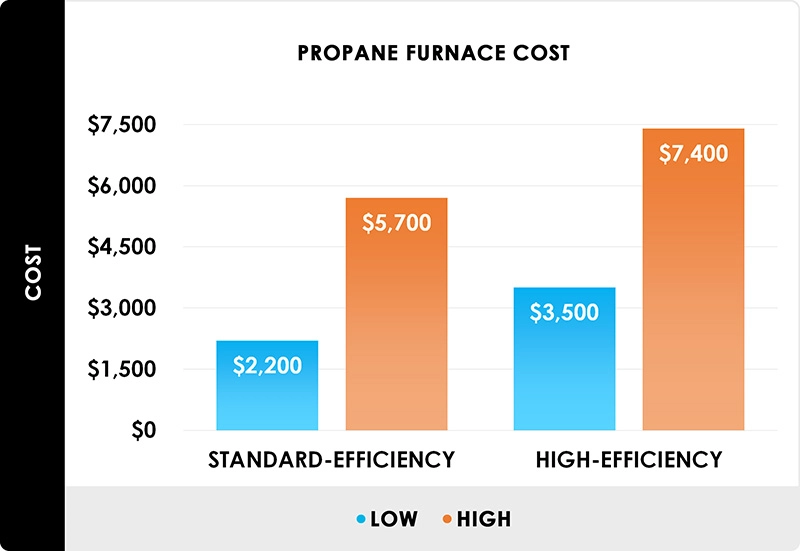
Cost of Converting a Natural Gas Furnace to Propane
If you already own and install a natural gas furnace, the cost of converting your natural gas furnace to propane can range from $75 to $250. However, if you need to buy a new furnace, convert it from natural gas to propane, and install it, the total cost of parts, labor, and installation can range from $4,075 to $8,250.
Cost of Converting an Oil Furnace to Propane
Converting an oil furnace to propane involves certain costs that can vary based on different factors. According to the information found on BoilersGuide, the cost to convert an oil furnace to propane can range from $1,000 to $1,500. However, it’s important to note that this cost may not include additional expenses such as purchasing a new propane furnace or any necessary modifications to the existing heating system.
In addition, other sources mention that when converting from oil to propane, there may be upfront costs associated with purchasing a new furnace or boiler that is compatible with propane fuel. However, over time, the cost of using propane may be lower than oil fuel.
How much does it cost to install a propane boiler?
propane boiler cost
The cost of installing a propane furnace can vary depending on factors such as the size of the property, existing infrastructure, and desired efficiency. On average, the cost can range from $3,000 to $12,000, including the cost of the furnace, installation, and any necessary modifications to the heating system. However, it’s important to note that the actual cost may vary based on factors such as the size and efficiency of the boiler, the complexity of the installation, and regional labor and material costs.
For a smaller home in a warm climate, the cost of installing a propane boiler can be as low as $2,000. On the other hand, in colder climates or for larger homes, the cost can reach up to $15,000.
Conclusion
In conclusion, a propane boiler installed by Fangkuai Boiler can provide efficient and reliable heating for your home. Installation costs range from $3,800 to $12,000, depending on the various factors discussed earlier. For an accurate cost estimate based on your situation and location, it is essential to consult an HVAC professional or contractor. Contact Fangkuai Boiler today to learn more about our propane boiler options and let us help you find the perfect heating solution for your needs.









 Get FREE Local Boiler Quotes Today
Get FREE Local Boiler Quotes Today
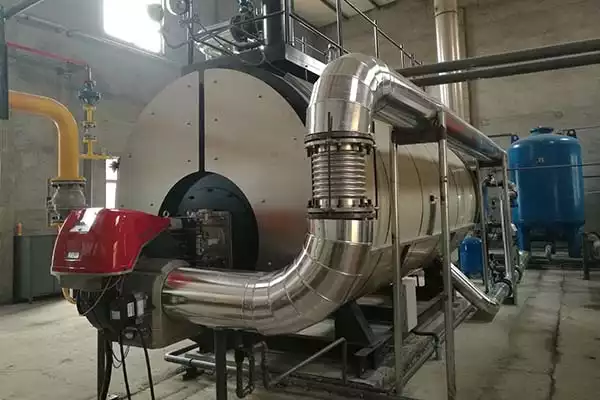
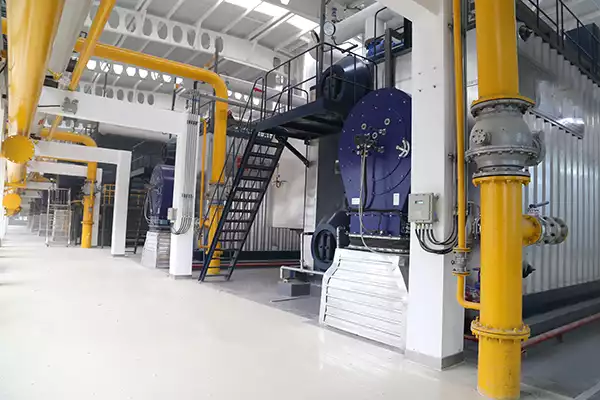
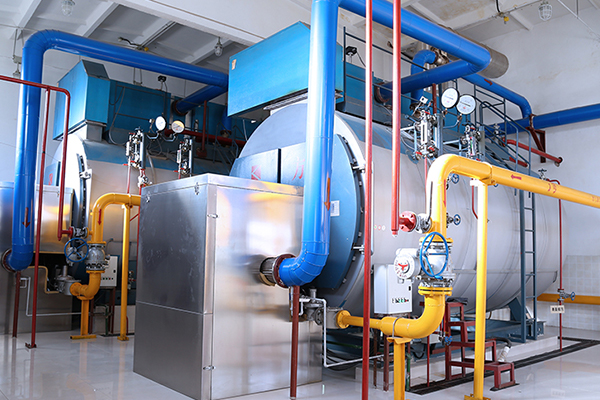

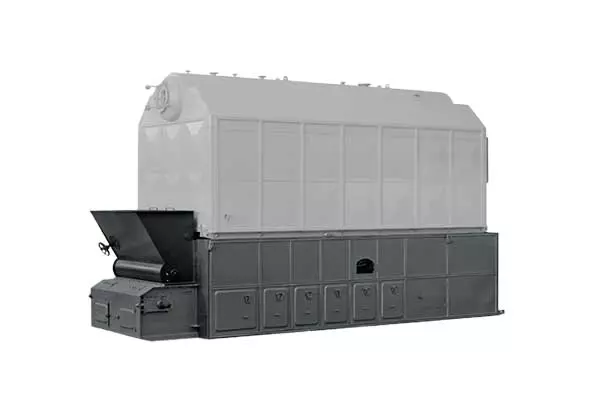
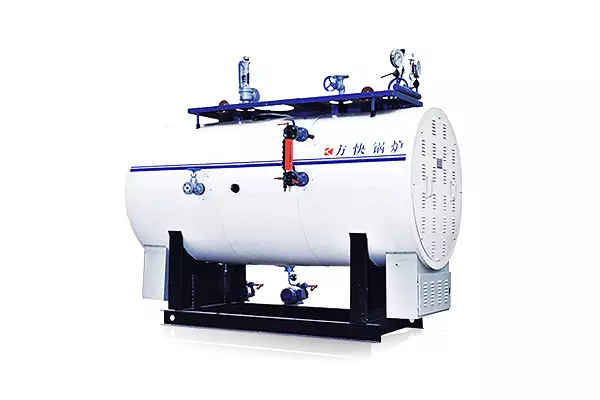
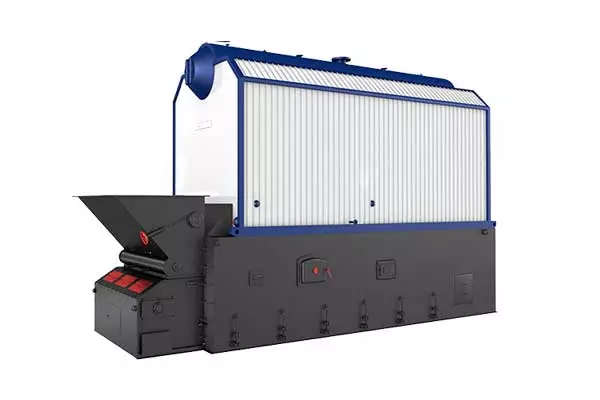
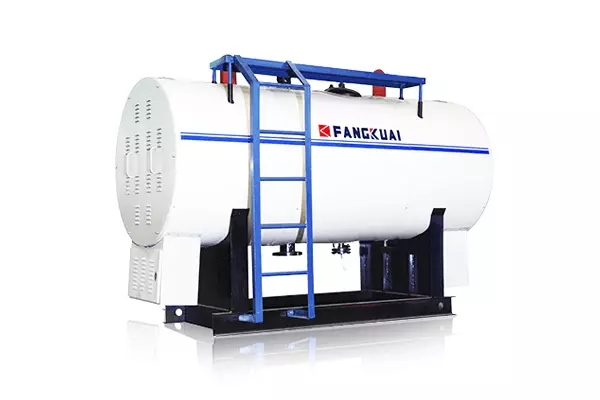



View Reviews of our Customer
"I purchased a Fangkuai steam boiler for my factory and it has been working flawlessly for months now. The quality of the materials and the construction of the boiler are impressive. It is also very energy efficient, which has helped us save money on our energy bills. I highly recommend Fangkuai's products to anyone in need of reliable and efficient heating solutions."
John
USA"The hot water boiler from Fangkuai is amazing. It heats up quickly and efficiently, and the water stays hot for a long time. We have never had any issues with it and it has made a significant improvement in our daily operations. The installation process was also very smooth and the customer service was excellent. I highly recommend Fangkuai's hot water boilers."
Sarah
Canada"Fangkuai's steam generators are excellent. They are very easy to use and require minimal maintenance. The customer service at Fangkuai is also exceptional. They are very responsive and always willing to help. The energy efficiency of the steam generators is also remarkable, which has helped me save money on my energy bills. I highly recommend Fangkuai's steam generators."
Maria
Spain"I am very impressed with the quality of Fangkuai's hot water boiler. It is built to last and has exceeded my expectations. The installation process was also very smooth and the customer service was excellent. The hot water boiler is very easy to operate and maintain, and the energy efficiency is remarkable. I highly recommend Fangkuai's hot water boilers."
Jack
Australia"The steam boiler from Fangkuai is perfect for my food processing business. It meets all of our requirements and is very reliable. The quality of the materials and the construction of the boiler are exceptional. It is also very easy to operate and maintain, which has helped us save time and money on maintenance. I highly recommend Fangkuai's steam boilers to anyone in need of reliable heating solutions."
Json
Brazil"I purchased a Fangkuai steam boiler for my factory and it has been working flawlessly for months now. The quality of the materials and the construction of the boiler are impressive. It is also very energy efficient, which has helped us save money on our energy bills. I highly recommend Fangkuai's products to anyone in need of reliable and efficient heating solutions."
John
USA"The thermal oil boiler from Fangkuai is very easy to operate and maintain. It has helped us save time and money on maintenance, which has led to significant cost savings. The quality of the materials and the construction of the boiler are exceptional. It is also very energy efficient, which has helped us save money on our energy bills. I highly recommend Fangkuai's thermal oil boiler ."
Allen
Brazil"Fangkuai's steam generators are excellent. They are very easy to use and require minimal maintenance. The customer service at Fangkuai is also exceptional. They are very responsive and always willing to help. The energy efficiency of the steam generators is also remarkable, which has helped me save money on my energy bills. I highly recommend Fangkuai's steam generators."
Maria
Spain"We have been using the Fangkuai thermal oil boiler for our chemical plant for years and it has never let us down. The boiler is very durable and can withstand harsh conditions. It is also very easy to operate and maintain, which has helped us save time and money on maintenance. Fangkuai's thermal oil boilers are top-notch and I highly recommend them to anyone in need of reliable heating solutions."
Chang
China